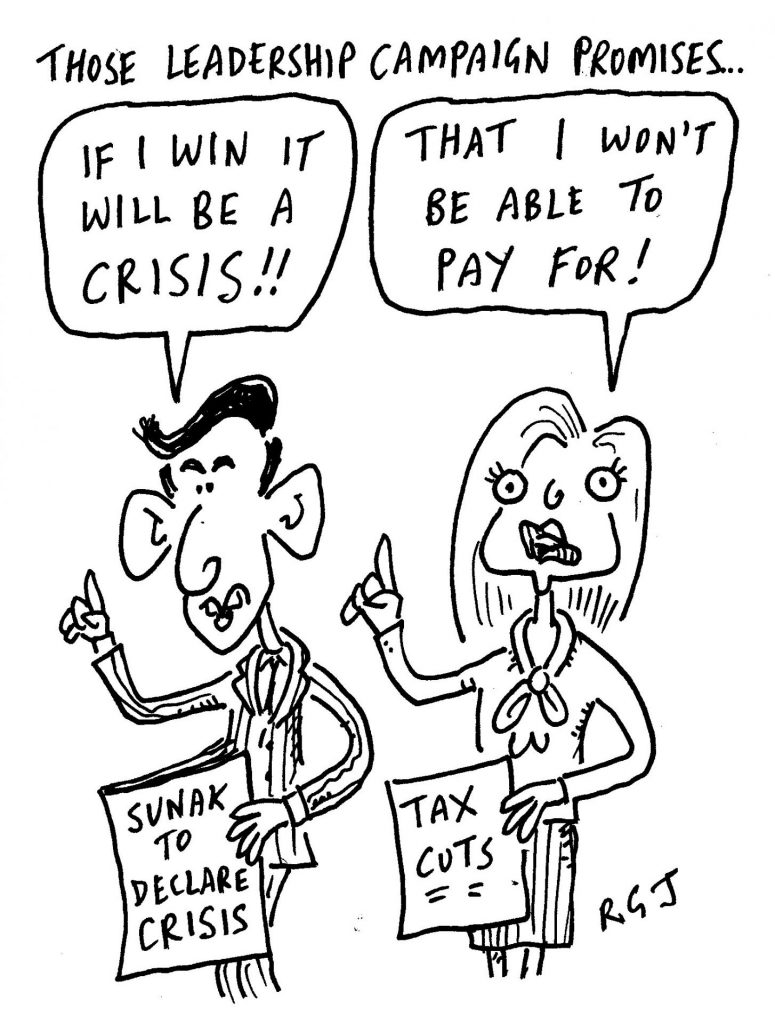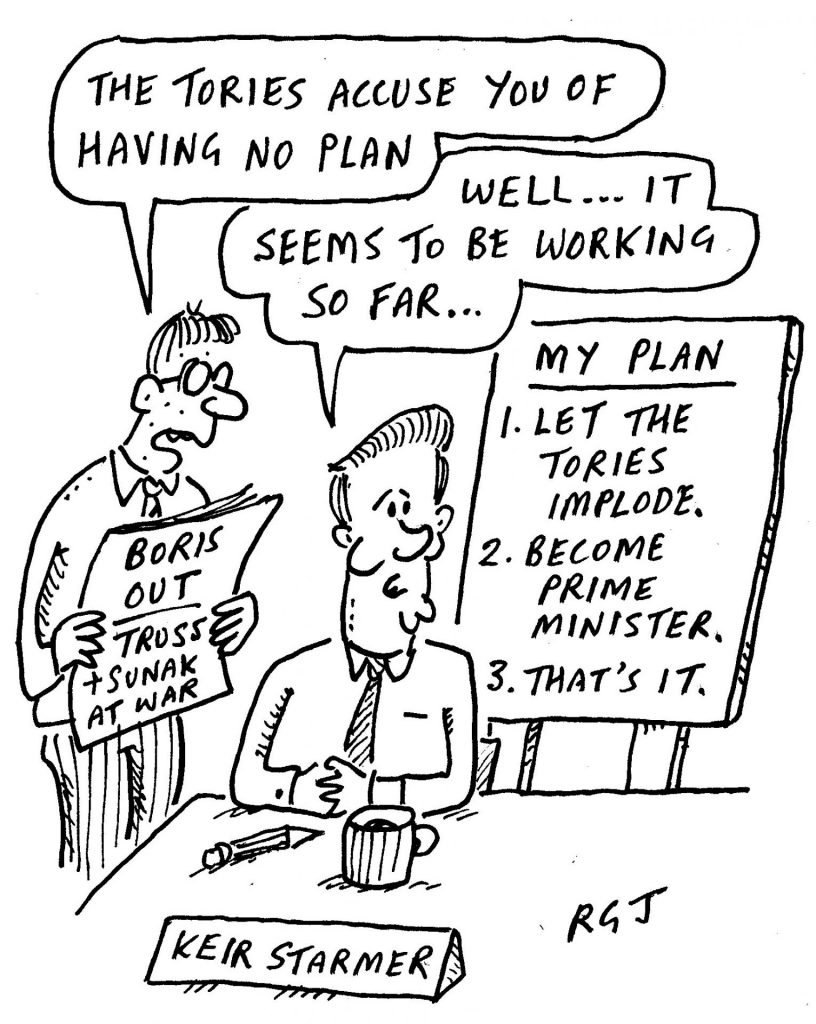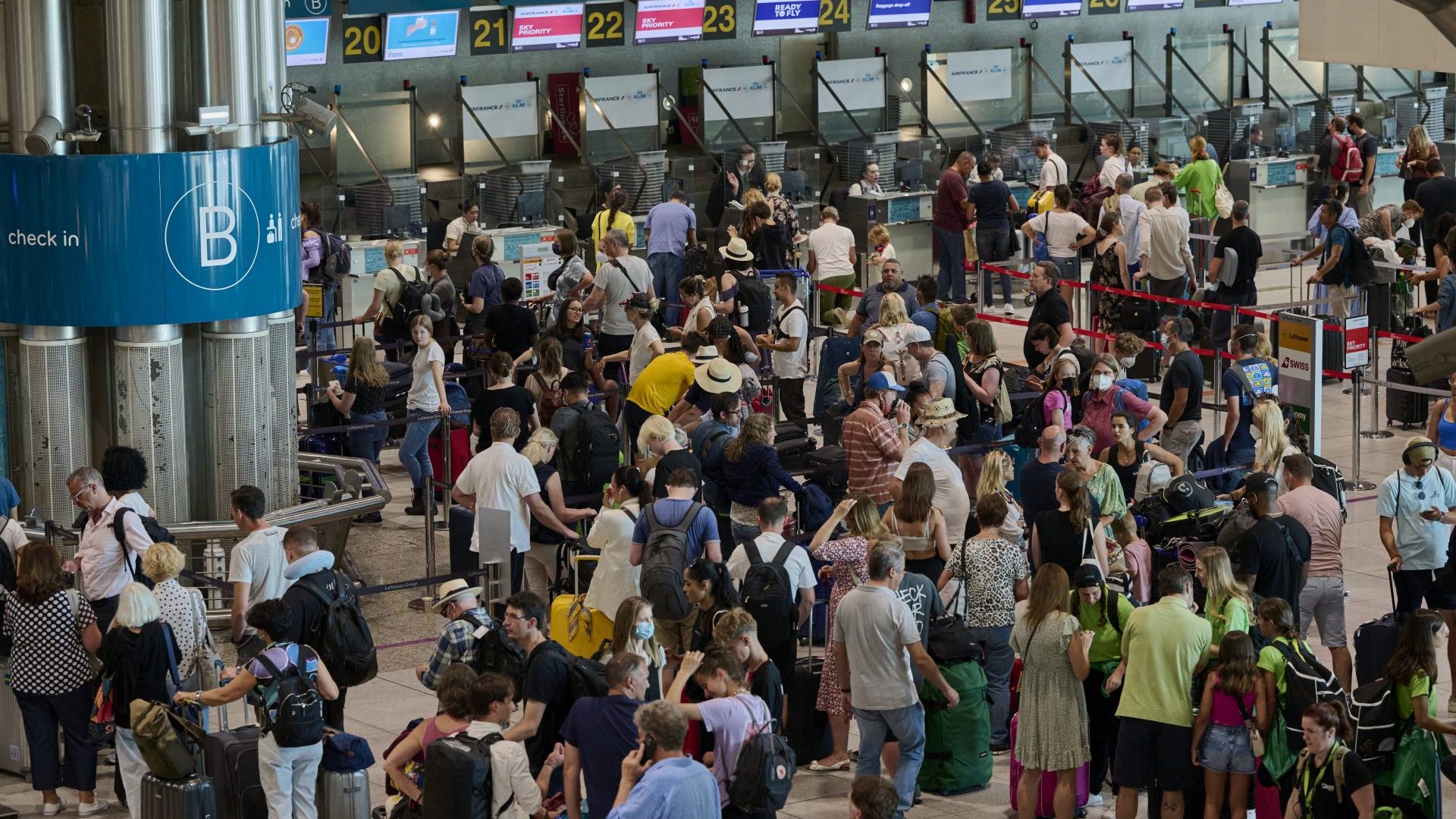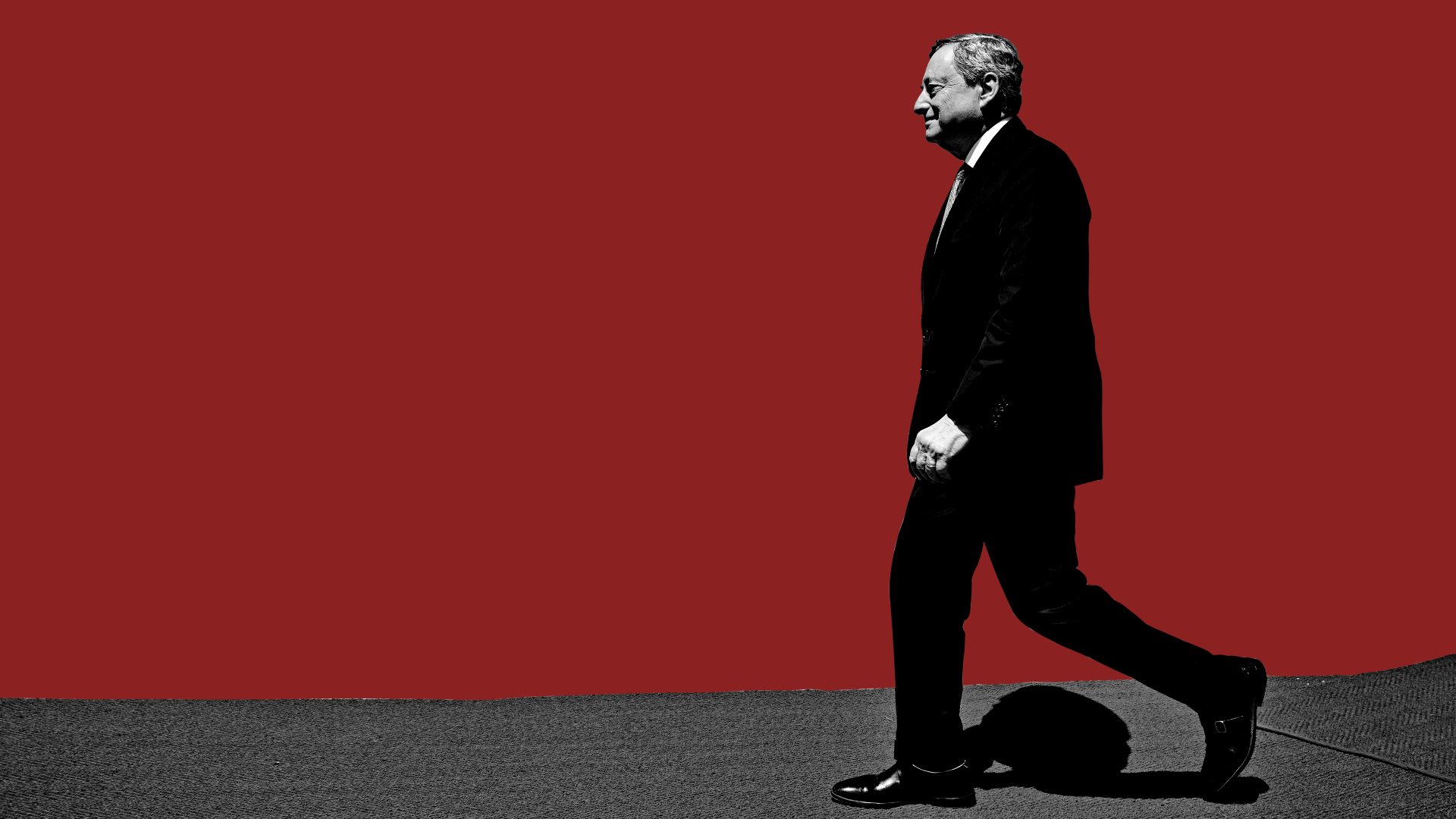Fiona wouldn’t let me get out of the car, as we crawled from the pet passport centre to the Eurotunnel train taking us to France… she was worried I would repeat the “Leper Lane” exercise I conducted at Lisbon airport a while back.
The “Leper Lane” is what immigration staff around Europe have taken to calling the one that Brits have to go into, along with the rest of our lost empire, while EU citizens glide through by popping their passport into the electronic thingy. (Electronic thingy is a technical term dreamt up by Brussels bureaucrats who used to tie us in chains before we freed ourselves to live permanently on the sunlit uplands of seven-hour queues, rotting fruit fields, a shrinking economy and a peace process in peril.)
Deprived of the electronic thingy, we had to rely on limited numbers of Portuguese humans to check us in and stamp us through. Given the time this took, I found it hard to contain myself, eventually demanding loudly of my fellow queuers: “Anyone here vote Brexit and want to talk about it?” Answer came there none. The rolled eyes and shrugged shoulders suggested they were all pretending to be with me, both in my exasperation watching the Europeans glide past, and in seeing the link with Brexit.
So Fiona, who has had more than enough experience of my traffic jam impatience and political argumentativeness down the years, was not risking me doing the same with the occupants of miles of cars fuming in the heat as trade ground to a halt and holidays got off to the worst possible start.
On the law of averages, however, the truth is that many of them DID vote for
Brexit. Perhaps they voted Brexit because they did that old-fashioned thing of believing that politicians meant it when they said that we would be able to take back control of our borders without adding to any inconvenience for ourselves. Or perhaps they thought that, even if there might be teething problems with new systems required to bring in such a change, at least a competent government would be able to sort them out.
Sadly, competence has joined fact-based debate in the dustbin of Brexit Britain’s history, so instead, the lies keep pouring from their lips, and the chaos keeps mounting. Boris Johnson – yes, still there – takes time off from doing nothing about the chaos to play at being a Ukrainian soldier, and write
a piece for the Sunday Express about how he got Brexit done, we should all be very grateful to him, and beware the Remainiacs who want to undo his great legacy. Liz Truss – yes, the foreign secretary – spotted an opportunity to play that game so beloved of the ageing golf club bores who exclusively decide who follows Boy Soldier to become the fourth participant in the “worst PM in history” competition launched 12 years ago, namely “blame the French”.
According to the rancid right wing rags, she “warned” President Macron he needed to “fix it”. This brought back memories of the great fireplace salesman Gavin Williamson, currently manning the Rishi Sunak voter intention spreadsheets, heart sinking as he does so, telling Vladimir Putin to go away and shut up.

Was it really too much to hope that with Johnson toppled, those vying to succeed him would understand that his lies, gaslighting, and elevation of fantasy over fact were among the reasons for his fall? Sadly, it was. Sunak tried to inject a bit of grown-up economic talk into the debate early on, but is now realising Truss’s fantasy economics and fantasy politics are playing better with the golf club bores.
So they’re both singing the same songs… Brits great, French bad, Rwanda
policy fantastic, breaking international law cool, let’s have a bonfire of red tape, Brexit problems nothing to do with Brexit… oh, and let’s get Brexit done, and really, really mean it this time.
The unicorn is dead. Long live the unicorn.
It comes to something that sensible people are so alarmed by the prospect of Liz Truss becoming PM that they want Sunak to win. May I let you down gently… Truss is going to win. And she is going to be even more of a prisoner
of the European Research Group than her predecessors.
Sunak does actually believe in the right-wing Sovereign Individual economics that has made him richer and the country poorer. Truss, a former anti-monarchist, a former Lib Dem, a former Remainer, believes in whatever she needs to say or do to climb the next step up the political ladder. When she reaches the peak, she will be utterly beholden to the same tiny number of barking hard-right Tory MPs – Steve Baker, John Redwood, Jacob Rees-Mogg, Nadine Dorries, Iain Duncan-Smith et al – for whom it would seem that no economic, political or social decline is sufficient to satisfy their ideological Brextremist purity.
We are currently getting more than a thousand questions sent in on email and social media before Rory Stewart and I record the weekly Question Time session for our podcast, The Rest Is Politics. Many of last week’s thousand-plus variously expressed rage, resentment, powerlessness and frustration that a
position as important as prime minister is being decided by what one listener called “a bunch of ageing Tory farts whose critical brain functions have been rotted by the right wing press”. It really is quite hard to argue with that assessment.
Added to which, someone I know to have been a lifelong Tory called me to say how much he appreciated me being nice about John Major in a recent column. We got chatting about the Tory leadership contest.
“So who are you voting for?” I asked.
“Oh, I don’t have a vote. I left when Johnson kicked all the decent people out. You’d be amazed how many of us left.”
Good news for the headbangers. Bad news for Britain.
That there is a real hunger to hear what an alternative Labour government would do was evidenced by the fact that Sir Keir Starmer’s interview for the podcast – still No 1 in the UK charts, thank you – was our biggest hit yet. For several days, unique downloads were well into six figures, numbers the new shock jock telly stations would kill for.
If I had to boil down the general response it was this… nice manner, confident and relaxed, heart definitely in the right place, loved hearing him
call out Johnson as a found-out bullshitter. BUT – want more detail and more boldness in Labour plans.
I get why he wants to limit his campaigning focus to the economy, public services and uniting the country. “Make Brexit Work”, however, positively puts off as many as it is meant to neutralise; “grow the economy” likewise is a noble and necessary aim, but we need much more detail.
To be fair to Starmer, he has always said there were three stages to his campaign for No 10: first, detoxify the Labour brand post Corbyn, and deal with antisemitism; second, show the Tories as unfit for office; third, show the alternative. Labour really has to seize this moment to make the third part come alive. The words on the podcast were fine. The detailed plans now have to follow, and time is short.
“Disagreeing agreeably” is the approach Rory Stewart and I try to take on the podcast. However, we may have to have a bit of a disagreeable disagreement following his praise last week for the success of his old school, Eton, in producing so many leaders, soldiers, and great actors.
He listed some of the actors – Dominic West, Eddie Redmayne, Damian Lewis – who have become big stars. Later, I took a look at Eton’s website: “There are three different theatre spaces, staffed by professional theatre practitioners. This includes a resident designer as well as a theatre director and filmmaker-in-residence, who are appointed every year to bring the most up-to-date perspectives into the department.”
And for sport: “We now have four floodlit artificial pitches, and from 2022 to 2024 we will build new indoor facilities, including a new swimming pool and two sports halls. These will all complement our fantastic current outdoor facilities, which include approximately 40 football/rugby pitches, a 2km rowing lake, 19 cricket pitches and 50 tennis courts.”
And if music is your thing: “The music schools house two concert halls, a
recording studio, three music technology suites, drum suites, a music library, and a large number of teaching and practice rooms. Eton has two
chapels which are home to four of the school’s seven pipe organs. The school
has recently embarked on a major refurbishment of its school hall, which
will see the creation of a state-of-the-art symphonic concert hall. All of our key performance spaces are equipped with Steinway or Fazioli concert grand
pianos. There are currently 53 instrumental ensembles which rehearse each week.” How lovely.
After reading that, the surprise is not how many great performers they
produce, but how few. Oh, and we subsidise them through the tax system, because private schools are “charities”. Yeah, sure. Of course they are.
Tweet of the Month, from Kev Hall, aka @deKuip02, who accurately explains the story dominating all others in the UK’s bizarre politico-media ecosystem, describing the Tory leadership election as follows: “New Tory PM to fix mess
that current Tory PM made, who promised to fix the mess the Tory PM before him made following the mess the Tory PM before her made. It all started with the mess the current PM created when he wasn’t PM in order to become PM.”
Between them, three Tory prime ministers over 12 years of ABC – Austerity, Brexit and Charlatanism – have weakened our economy, reduced some of our most vital public services to breaking point, and done irreparable damage to our standing in the world. Yet a media that helped to normalise and justify all of the above, when so much of it was deeply abnormal, now treats us to endless, breathlessly excited coverage of the bizarre process by which Tory PM number four is being chosen.
When the BBC news leads on an attorney general who backs prime ministerial law-breaking coming out in support of a former Remainer turned Good Friday Agreement-destroying Brexit fanatic whose campaign is built on unfunded tax promises every bit as fantastical as those on which Tory PM number three got the job, does nobody in the editorial process stop to ask: “Do we need a bit more ‘context’ here?” And as none of their reports seem complete without the latest views of failed Brexit negotiator turned self-styled Tory party sage David Frost, or failed Brexit secretary David Davis,
giggling away boastfully about Tory MPs being the most duplicitous electorate on the planet, is nobody saying: “I wonder if we shouldn’t be challenging the overall narrative of this contest a bit harder?”

Of course the election of a new Tory leader who becomes prime minister is enormously important and newsworthy. Krishnan Guru-Murthy did a good job keeping things moving along as five variously bang-average candidates platituded their way through the first televised debate, but there is so little
questioning either of the process to choose the next PM in this way, or real scrutiny of the half-baked proposals and vacuous slogans they are all bringing to the table.
Thank heavens for Sky News’ business presenter, Ian King, for just blurting out the truth … “I’ve never heard such rubbish,” he said of the various fantasy economics platforms being laid out. I fear there may be worse to come.
Talking of distorted news values… I don’t think I have ever read a watchdog report quite as blunt and brutal as the Environment Agency’s judgment on England’s water companies. Yet I would not be at all surprised if this is the first you have heard of it.
The foreword, by chair Emma Howard Boyd, is utterly excoriating, calling the environmental performance of the nine water and sewerage companies “the worst we have seen for years”. Some companies are condemned as
“terrible across the board”; the performance on pollution is “shocking”; the behaviour of company directors is “simply unacceptable”.
She is scathing about the money that they have paid themselves, set against poor performance, then says this: “We have begun the country’s largest ever investigation into environmental crime, involving all the companies, where
we are looking at whether they have knowingly and deliberately broken the law in relation to the treatment and discharge of sewage. But this is not enough. The water companies will only stop behaving like this if they are forced to. The amount a company can be fined for environmental crimes is unlimited, but fines currently handed down by the courts often amount to less than a chief executive’s salary. We need courts to impose much higher
fines for serious and deliberate pollution incidents. The threat of significant impending financial penalties has an impact. Investors should no longer see England’s water monopolies as a one-way bet.”
Howard Boyd continues: “Repeat offenders can now expect criminal prosecutions for less serious environmental incidents where once the Environment Agency would have used civil powers. We would like to see prison sentences for chief executives and board members whose companies are responsible for the most serious incidents. We would also like to see company directors being struck off so they cannot simply delete illegal environmental damage from their CV and move on to their next role.”
The Environment Agency chair calling for bosses of the privatised water companies to be jailed … call me old-fashioned, but I would have called that quite newsworthy. Yet so broken is Britain after the ABC mentioned above, and so obsessed is our media about what Suella Braverman said about whether Liz Truss was more of a Brextremist than Penny Mordaunt or Kemi
Badenoch, and what Tom Tugendhat was thinking he should tell his people to do in order to get a decent job if Rishi Sunak ends up winning, that such a shocking story, backed with horrific analysis of the declining performance of these companies, barely limps into the debate.
I had a very nice time at Sandhurst Military Academy, visiting the Army Leadership Centre and being interviewed by Lt-Col Henry Llewelyn-Usher for their podcast series on modern leadership. I have enough experience of, and respect for, our armed forces to know that I had to leave my political views out of our exchanges.
However, as I later read through the latest iteration of the Army Leadership Doctrine, which is heavy on values, standards, ethics, moral courage and integrity, I couldn’t help being drawn to the page identifying what it calls “characteristics of toxic leaders”. Autocratic. Narcissistic. Manipulative. Intimidating. Overly competitive. Discriminatory.
The doctrine is very much aimed at military leaders. But political leaders would do well to study and absorb it, too.




